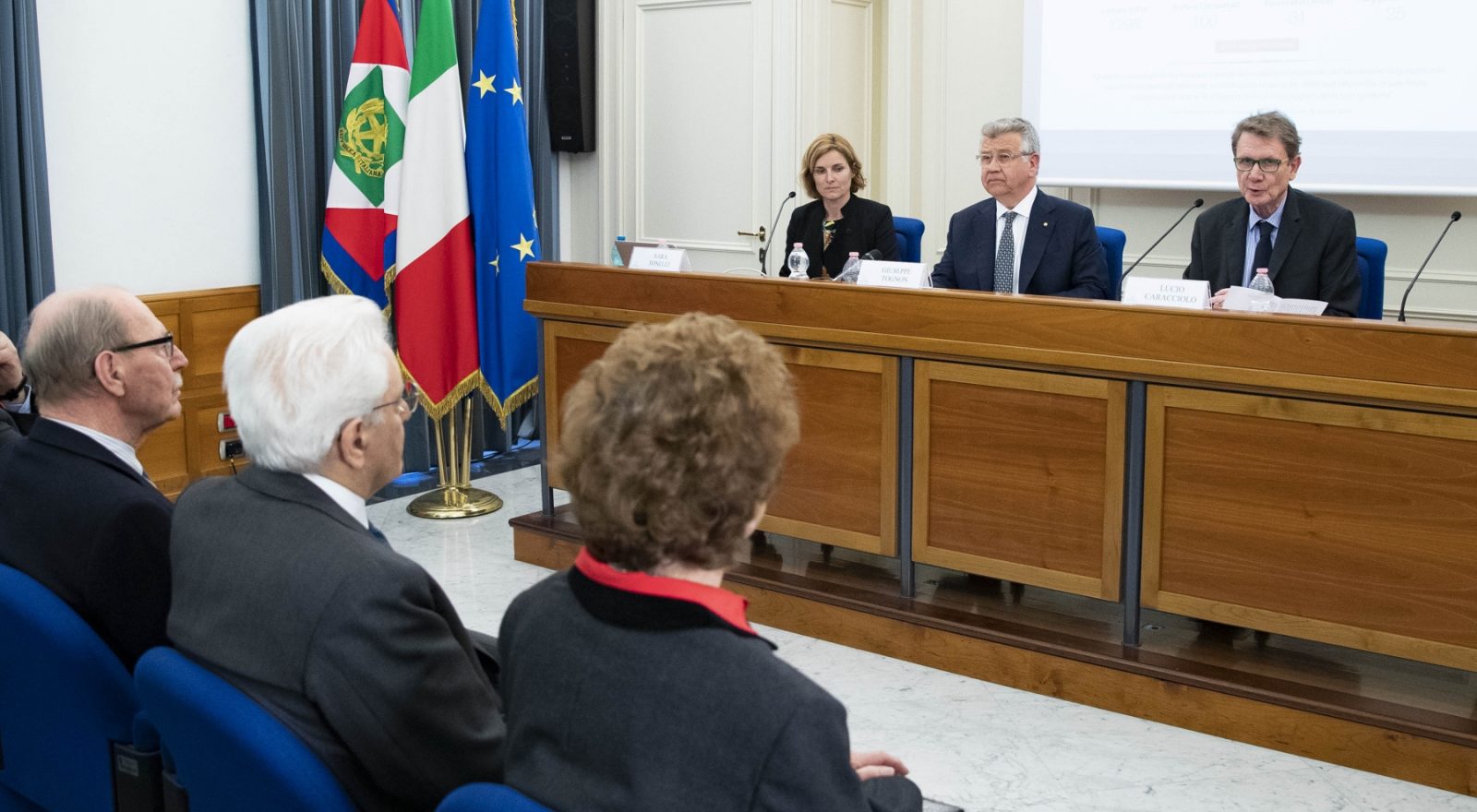FBK brings the letters of Alcide de Gasperi online
With a work of over two years, still ongoing, the Digital Humanities Unit has created a large digital archive of letters written and received by the statesman from Trentino.
On Friday, 5 April, in the presence of President Sergio Mattarella, the national digital edition of the collection of Alcide De Gasperi’s letters was presented at the Quirinale historical archive in Rome.
The correspondence of the statesman from Trentino was digitized and published online thanks to a national project of the MiBACT born on the initiative of FondazioneTrentina Alcide De Gasperi, Fondazione Bruno Kessler, Istituto Luigi Sturzo of Rome and the De Gasperi family.
The FBK Digital Humanities unit, led by Sara Tonelli, is the technical partner of the project and in these two years has worked on the development of a platform that on the one hand helps historians and archivists to trace and catalog the sources in the various archives, and, on the other hand, it gives back to the public a public list with original documents, transcripts and other interesting information that could be used to build further paths and research.
As a working group, we have worked for two years to build the technology architecture of the entire platform and of everything that lies behind what the end user sees online – explains the researcher -. We have developed an ad-hoc application made available to the network of scholars, researchers and archivists who, once they have identified a valid source, can photograph it using the app, add descriptions and other information. The data collected automatically reaches a centralized database with two levels of correction – a scientific supervisor and an editor – that after further verification, publishes the document online. It is an infrastructure that allows users to move from paper to digital in just a few steps and that opens up a new world to us scholars of digital humanities, still unexplored and with great potential for artificial intelligence applications “.
What users see on the correspondence website now is a large collection of documents, many scanned in very high resolution, transcriptions, and other information such as the type of document, the date, the sender, the content abstract, the place and the state of conservation.
“In addition to viewing the original documents, the consultation platform offers the possibility of carrying out advanced searches on both textual content and metadata, for example reading all the letters that are concerned with Europe or that are addressed to a specific recipient. Other information, not necessarily present in the documents, can be extracted through advanced techniques of text semantic analysis and made available to users with interactive visualizations of the results”.
As of last Friday, users can find, at www.epistolariodegasperi.it, the first 1,300 letters of a corpus that is estimated to be at least 5,000 document, available for free.
Currently over 106 cultural institutions and archives from 9 countries have participated in the initiative. The research is very advanced in the USA, Germany and Austria and, in the coming months, we will start working with the French and English archives. We are also proceeding to inventorying documents at the Central State Archive which will be followed by that of the Ministry of Foreign Affairs. The work, which is expected to be completed in 2021, avails itself of a national scientific committee composed of the most important experts in De Gasperi.
The project on the National Edition of Alcide De Gasperi’s collection of letters is also supported by the Caritro Foundation and the Cariplo Foundation.

